In this exclusive interview with APAC Media, Dr. Amisha Jain, Head of the Regional Office – India & South Asia at the University of Cologne, shares insights into how the university is fostering Indo-German academic collaborations and enabling a smooth transition for students through structured support, innovative programs, and industry-relevant education.
From digital transformation to sustainability-focused research, Dr. Jain discusses the University of Cologne’s expanding role in shaping the future of higher education between India and Germany.
How is the University of Cologne positioning itself to attract Indian students amid increasing visa challenges in countries like the UK, the US, and Canada? How does the University of Cologne support Indian students in overcoming cultural and language barriers while studying in Germany?
The University of Cologne has had its Regional Branch office in New Delhi since 2009 to support Indian students with information about the study and research programs, visa guidance, and practical assistance. It fosters academic partnerships, faculty exchange, and joint programs with leading Indian institutions.
The India Office Director represents the University of Cologne’s scientists, aligning with its strategy and working with Indian partners to implement it. Guidance offered to students and parents is based on in-depth knowledge of the University of Cologne’s academic structure and admission processes.
The University of Cologne’s inclusive and internationally oriented environment can provide comfort to Indian students who are contemplating the institution but are uncertain due to cultural or language barriers.
At present, the university provides more than 40 English-taught master’s programs in fields such as economics, management, and natural sciences, with additional programs being added on a regular basis. There are also numerous opportunities for postdoctoral and PhD research in English. Additionally, the city of Cologne is renowned for its multicultural ambiance, accessibility, and informal use of English, which render it an ideal destination for international students.
The DaF (German as a Foreign Language) department at the university provides structured German language courses at all levels, enabling students to progressively adapt linguistically without pressure. Furthermore, the university’s International Office provides seminars and the Intercultural Mentoring Program to facilitate cultural integration by providing peer guidance and cross-cultural training.
In Cologne, the vibrant Indian student community is flourishing, strengthened by initiatives such as SASA (South Asian Students Association), which coordinates Indian and other South Asian festivals, networking events, and cultural support for newcomers. These organizations, paired with the city’s vibrant student life and openness, contribute to the creation of a sense of home away from home.
Ultimately, the University of Cologne and the city itself provide a supportive and welcoming environment that enables Indian students to flourish in both their academic and social pursuits. Cultural and linguistic disparities are more of a bridge than a barrier when one has access to English-taught programs, structured language support, and a diverse community.
Could you highlight some of the most popular courses among Indian students at the University of Cologne? How do these programs align with current and future industry demands, both globally and in emerging markets of India?
Indian students are particularly drawn to the programs offered by the Faculty of Management and the Faculty of Mathematics and Natural Sciences at the University of Cologne. International Management (CEMS MIM), Business Analytics, Finance, and Supply Chain Management are highly sought-after courses that closely replicate global and Indian trends in data-centric business strategies, fintech, and digital innovation. Offering a distinctive combination of academic excellence and international exposure, the Double Master’s Program in partnership with IIM Ahmedabad, Calcutta, and Bangalore is particularly appealing.
In terms of science, programs in Environmental Sciences, Inorganic Chemistry, Geography, Urbanisation, Plant Sciences, and Climate Modelling offer advanced training that is in accordance with the increasing demand in the research, technology, and sustainability sectors. The career pathways that these offerings establish are robust in both established and emerging markets. In addition, the university’s Excellence Gateway and Start-up Center provide active support to students and faculty in the process of converting innovative concepts into market-ready ventures.
Is the university working with industry partners in designing or updating curricula to ensure relevance and employability?
Yes, the University of Cologne actively engages in collaboration with industry partners, notably in its Faculty of Management & Economics (WiSo), to co-design and regularly update curricula. This ensures that students acquire the skills that employers require today and in the future.
For instance, in April 2025, WiSo initiated a partnership with Henkel, a global leader in industrial products and consumer goods, that encompasses joint projects, guest lectures, and hands-on initiatives that are integrated into coursework. Across the broader faculty, numerous courses feature transient lecturers from industry, who bring current, practical insights directly into the classroom. The WiSo Career Service facilitates the integration of academic learning with the demands of the workforce by providing internships, employer mentorship, and career seminars that have been developed in partnership with prominent companies.
Within the science stream, the university is enhancing its STEM curricula by implementing initiatives such as the ‘Curriculum 4.0.nrw’ project, which integrates digital literacy, data skills, and new work concepts into degree programs in response to the changing requirements of the technology and sustainability sectors.
In general, the University of Cologne promotes employability by establishing structured partnerships. This includes the integration of industry experts into the teaching process and the co-development of course content, as well as the provision of corporate-sponsored projects, internships, and flexible, technology- and sustainability-oriented curriculum updates. Furthermore, the university’s Excellence Gateway and Start-up Center provide active support to students and faculty from all streams in the process of converting innovative concepts into market-ready ventures.
What specific support systems are in place to help Indian students adapt to life and studies in Germany? Are there any scholarships, mentorship programs, or language support services specially tailored for Indian students?
The University of Cologne exclusively offers ‘Studienstart International,’ a free-of-charge, closely supervised one-semester introductory program for non-EU undergraduate students, which includes further training of German language skills, intercultural seminars, and individual and academic preparation. In addition, ‘Studienstart International Plus’ is our alternative to the ‘Studienkolleg’, where applicants can achieve a subject-specific direct university admission.
The University of Cologne offers a comprehensive support system to facilitate the seamless transition of Indian students to life and education in Germany. Among its most significant offerings is the Albertus-Magnus-Programm, which provides financial aid, mentoring, and interdisciplinary seminars specifically tailored to students from emerging countries.
The DaF (German as a Foreign Language) department offers German language courses to Indian students, and the International Office provides academic counselling, admission services, and administrative assistance. The Welcome Centre provides additional support to students by offering orientation programs, buddy systems, intercultural events, visa guidance, lodging advice, and mental health services. Additionally, the university’s Regional Office in New Delhi is essential in its operation, as it supports joint programs and summer schools with Indian institutions, provides pre-departure counseling, and provides visa support. In total, these initiatives cultivate an environment that is both inclusive and well-supported for Indian students at Cologne.
How does the University of Cologne support international students in securing post-study work opportunities? Are there dedicated career services that help Indian students connect with employers in Germany?
The ‘Career Service International’ at the University of Cologne provides personalized consultations on topics such as strategic career planning in Germany, part-time employment, internships, and volunteer work to assist international students, including Indians, in securing post-study work.
Students can also receive assistance in the development of German-style applications and in comprehending the legal aspects of employment in Germany. Furthermore, the service provides seminars to assist students in the acquisition of competencies that are pertinent to the German labor market.
Additionally, the university organizes networking events such as “Career Tuesdays” and “Find Your Team” to facilitate the connection between students and local employers. Furthermore, the Career Service of the Faculty of Management, Economics & Social Sciences (WiSo) offers access to employment portals and company collaborations to improve job search opportunities.
Additionally, the Regional Office in New Delhi provides pre-departure advice and visa assistance to Indian students, facilitating their connection to the career service centers of the faculty.
How has the University of Cologne integrated digital technologies into teaching, research, and student services? What role does hybrid or online learning play in the university’s long-term academic delivery strategy, especially post-pandemic?
The University of Cologne has embraced digital transformation across teaching, research, and student services by adopting e-learning platforms like ILIAS and Zoom, offering hybrid and online formats, and investing in virtual campuses and digital exams.
The IDEaL platform is a notable program that facilitates Indo-German collaborative learning through tools such as flipped classrooms, XpertEye interactive fieldwork, and COIL-based formats in disciplines including geography and environmental sciences.
Hybrid and online learning are increasingly integral to UoC’s long-term plan, combining flexibility, global accessibility, and sustainability. The recently inaugurated JIMES program, a Joint International Master’s in Environmental Sustainability developed in collaboration with Bharati Vidyapeeth University’s BVIEER in India and the Faculty of Mathematics and Natural Sciences at the University of Cologne, incorporates digital instruction, exchange semesters, and field-based modules to equip students for international environmental careers.
What kind of partnerships, if any, has the University of Cologne undertaken with Indian institutions or education bodies?
In general, the University of Cologne has more than 88 university partnerships worldwide and more than 500 faculty members active in exchange. Indian students can benefit from the international network for further exchange while studying in Cologne.
MoUs with Indian Institutions: The University of Cologne has signed MoUs with over 20 leading Indian institutions, including the Indian Institute of Management, Indian Institute of Technology, Jawaharlal Nehru University, Indian Institute of Science Education & Research Bangalore, Bharati Vidyapeeth University, National Law School of India University Bangalore, etc. These MoUs support academic, research, and student exchange partnerships. The University of Cologne has enhanced academic collaboration by implementing innovative hybrid and dual-degree programs in the context of its strategic MoUs with Indian institutions. The Double Master’s Program in Business Administration, which enables students to study at both institutions in Germany and India, is a prime example. The program is jointly offered by the prestigious Indian Institutes of Management in Ahmedabad, Calcutta, and Bangalore. This program enhances global business competencies by incorporating hybrid learning, joint thesis supervision, and intercultural training. The JIMES (Joint International Master in Environmental Sustainability) program, which was devised in partnership with BVIEER, Pune, is another noteworthy result of Indo-German academic collaboration. A shared commitment to sustainability education and accessible, global learning is reflected in this hybrid program, which combines digital coursework, in-person field training, and an exchange semester.
These programs demonstrate that the MoUs between the University of Cologne and Indian partners are not merely symbolic; they are actively influencing the development of future-ready, digitally integrated education pathways that are in accordance with the academic priorities of both India and the global community.
What role do you see the University of Cologne playing in the evolving India-Germany higher education relationship, particularly in STEM, research, and business studies?
The University of Cologne is in a favorable position to contribute significantly to the developing relationship between India and Germany in the fields of higher education, particularly in the areas of STEM, research, and business studies. The university is expected to enhance its collaborative programs, expand joint research, and leverage digital and hybrid learning models that are tailored to global challenges by building upon its robust existing foundation, which is established through MoUs with top Indian institutions such as IIMs and Bhartiya Vidyapeeth University (BVIEER).
The University of Cologne’s dedication to the primary focus areas of India and Germany, which are climate change, sustainability, and data-driven innovation, is underscored by programs such as JIMES (in partnership with BVIEER) in the fields of STEM and environmental sciences. The university is also well-positioned to capitalize on Germany’s research expertise and India’s growing talent pool by promoting faculty exchanges, interdisciplinary research centers, and collaborative PhD programs. The Institute of Inorganic Chemistry is committed to providing students with the necessary skills and knowledge to address global challenges in energy, health, and the environment by fostering international partnerships and modern infrastructure. This is achieved through the provision of cutting-edge training and research in sustainable chemistry, catalysis, and advanced materials.
The Double Master’s Program with IIMs establishes a paradigm for future Indo-German academic integration in business education, connecting German analytical rigor with Indian market insight. Through this and other networks, the university provides Indian students with a more comprehensive understanding of global business ecosystems, internships, and corporate partnerships in Europe.
Especially in light of the fact that both nations prioritize talent exchange, green innovation, and global business collaboration, the University of Cologne is poised to become a critical academic hub in the strengthening of Indo-German educational and research ties. This is due to its commitment to innovation and internationalization, as well as its digital infrastructure and regional representation in India.



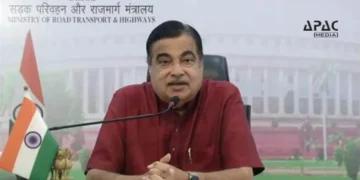
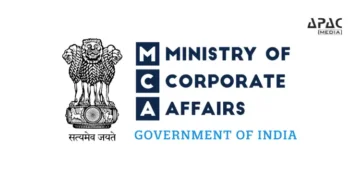
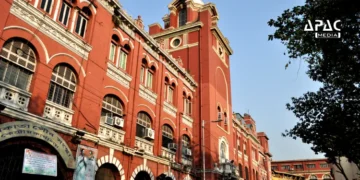


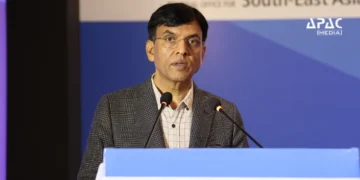
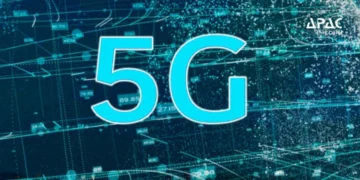

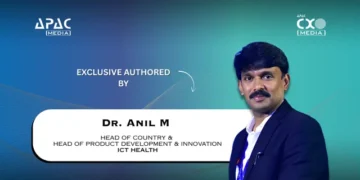

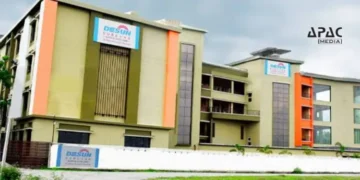
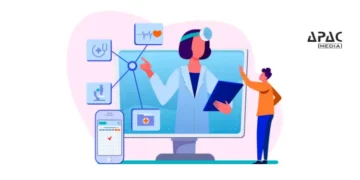




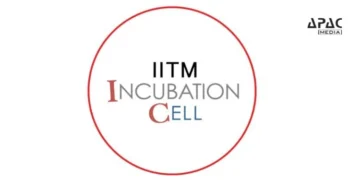


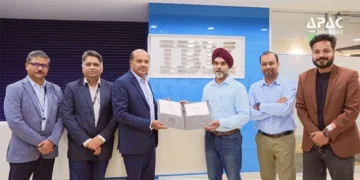
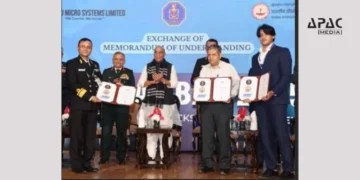
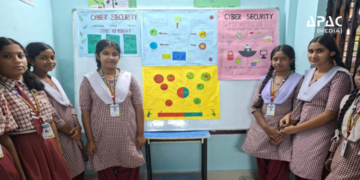
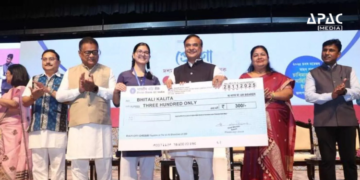


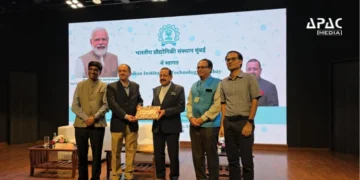
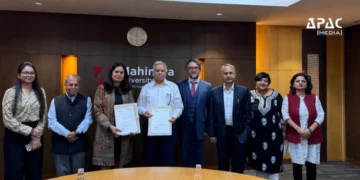
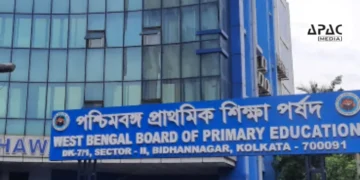
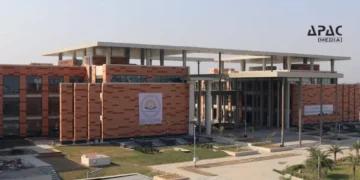





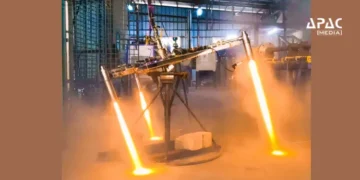



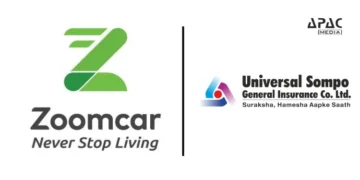










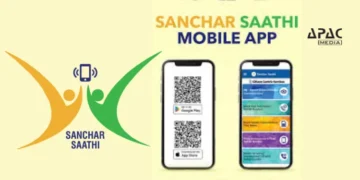

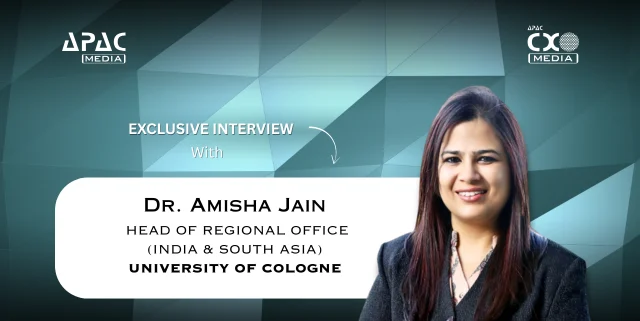
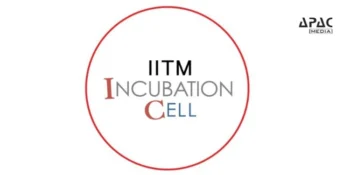




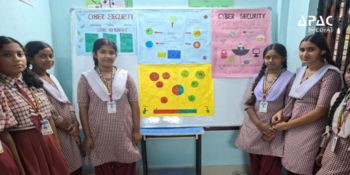

Discussion about this post